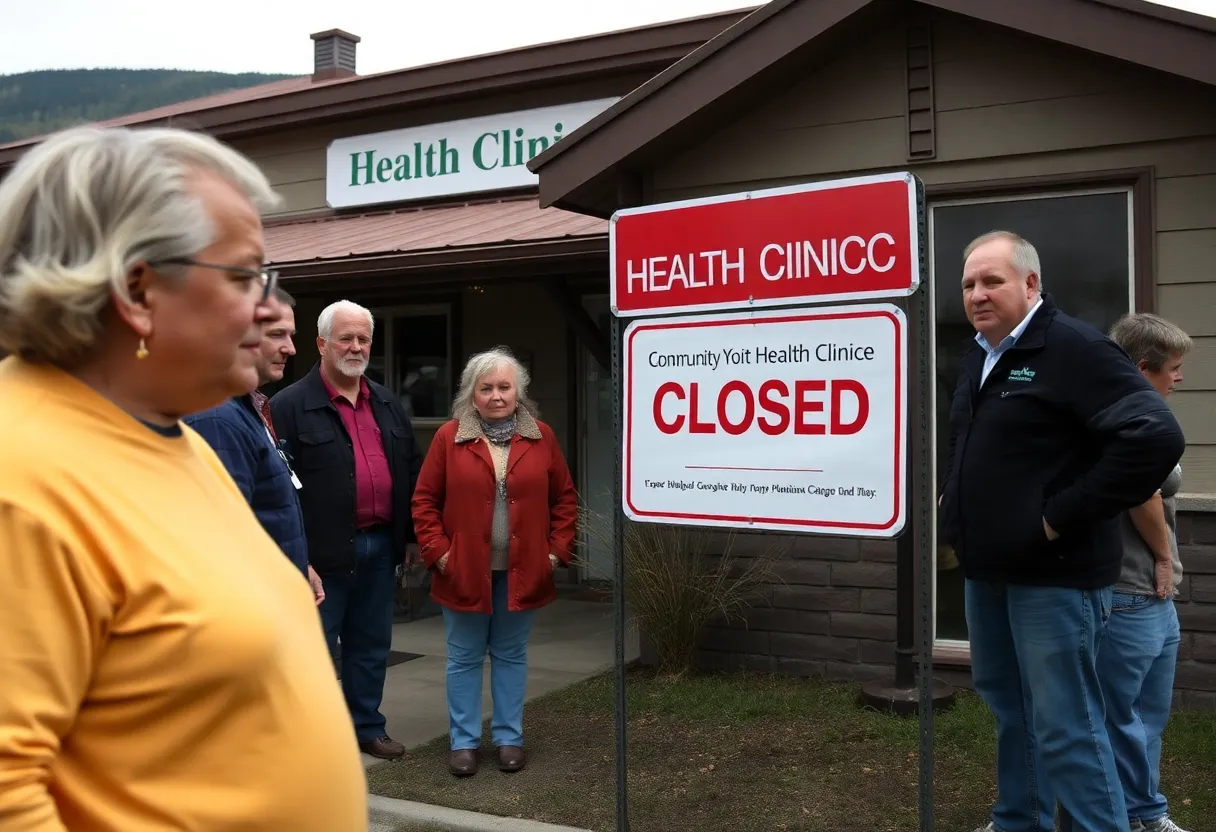News Summary
The CARD clinic in Libby, Montana, has been shut down due to a lawsuit from BNSF Railway, affecting many local residents relying on its services for health screenings and treatment.
The Closure of the CARD Clinic: A Blow to Libby’s Asbestos Victims
In a shocking turn of events, the Center for Asbestos Related Disease (CARD) clinic in Libby, Montana, has been shut down. The closure, executed by the Lincoln County Sheriff’s Office following a court order, follows a judgment against the clinic stemming from a lawsuit filed by BNSF Railway. The railway giant accused CARD of fraudulent practices that compromised the well-being of local residents suffering from asbestos-related ailments.
The Background of Asbestos Issues in Libby
Libby, a town with a population of around 3,000, has long faced the consequences of asbestos exposure, largely attributed to a nearby mine. The clinic served as a primary source for health screenings, monitoring, and treatment for individuals exposed to Libby amphibole asbestos. Established in 2000, CARD became a vital institution in the community, transforming into a nonprofit organization by 2003 to better serve the needs of asbestos victims.
Legal Tangle: The BNSF Lawsuit
The troubles for CARD began when BNSF Railway challenged the validity of over 2,000 diagnoses made by the clinic. In a ruling earlier this year, a jury found that CARD had fraudulently deemed many patients eligible for government benefits despite their questionable health statuses. Of the diagnoses in question, 337 were ruled false, paving the way for a $6 million judgment against the clinic. With attorney fees, court costs, and accrued interest, BNSF claimed they were owed an additional $3.1 million.
The Ripple Effect: Local Public Health at Risk
The abrupt closure of CARD has sent shockwaves through the Libby community, where many residents rely on the clinic for educational health screenings related to asbestos exposure. An attorney representing CARD has noted that this shutdown could significantly undermine the public’s health in the area, as it would lead to a reduction in screening for deadly asbestos-related diseases.
Despite CARD’s operational decline after the fraud judgment, efforts continued to maintain its services under a bankruptcy court settlement. However, BNSF’s push to collect on the judgment has been viewed as a violation of the terms of that settlement, causing further complications for the clinic’s attempts to remain functional.
Community Commitment in the Face of Adversity
As CARD shuttered its doors, the executive director of the clinic emphasized the importance of its services to the community and expressed commitment to fighting for its reopening. While CARD was largely funded through grants from the Centers for Disease Control and Prevention, which made up approximately 80% of its budget, this funding is now reportedly under review.
New Challenges: Lawsuits and Medical Malpractice Claims
In addition to the fraud lawsuit from BNSF, CARD is now facing further legal troubles. A local lawsuit has been filed against the clinic accusing it of medical malpractice and wrongful death, claiming that misdiagnoses and inappropriate opioid prescriptions contributed to detrimental health outcomes for residents. This could present even more significant challenges for any potential revival of the clinic.
The Broader Implications of Asbestos Exposure
The implications of CARD’s closure extend beyond the town itself. A 2024 federal jury had previously ruled that BNSF’s involvement in asbestos contamination was a contributing factor in the negligent deaths of local residents diagnosed with mesothelioma. With the clinic now closed, those who depend on it for monitoring and treatment are left with scant options, putting their lives at even greater risk.
Conclusion: A Community in Crisis
The sudden shutdown of the CARD clinic marks a critical moment for the people of Libby. With a history deeply intertwined with asbestos exposure and its devastating health impacts, the need for accessible healthcare services is paramount. As the legal battles continue and the community voices its concerns, the quest for justice and health remains an urgent call to action for the residents affected.
Deeper Dive: News & Info About This Topic
HERE Resources
Closure of the Center for Asbestos Related Disease Shakes Libby, Montana Community
The Closure of Libby’s Asbestos Screening Clinic: A Public Health Crisis
Asbestos Screening Clinic Closure Leaves Libby Residents in Jeopardy
Asbestos Clinic Closure Sends Shockwaves Through Libby Community
Asbestos Trade in India: A Carcinogenic Legacy and Ongoing Controversy
Family Seeks Witnesses After Kent Woman Dies from Mesothelioma
AEW’s EJ Nduka Parts Ways After Contract Expires
New Hope in the Fight Against Malignant Pleural Effusion: Exciting Pipeline Developments
Jury Awards $3 Million in Shocking Mesothelioma Case
Revolutionary Treatment for Mesothelioma: FDA Approves Injectable Opdivo
Additional Resources
- The Western News: Libby’s CARD Clinic Closed Following Court Ruling
- Wikipedia: Asbestos
- Associated Press: Libby, Montana Asbestos Clinic Shuttered
- Google Search: Asbestos Health Impacts
- KPAX: Libby Asbestos Clinic Shuttered After Court Order
- Encyclopedia Britannica: Asbestosis
- Ottumwa Courier: Asbestos Clinic Forced to Close in Montana Town
- Google News: Libby Montana Asbestos Clinic



















